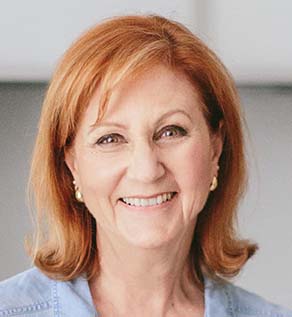Today in my video, I’m going to talk to you about fibromyalgia. Many people with irritable bowel syndrome have fibromyalgia. They seem to be very closely connected – both involve of an over-sensitivity to stimulation. We feel pain more acutely. In the video, I go through the different signs that you might have fibromyalgia.
Transcript for Symptoms of Fibromyalgia
Today, I’m going to talk to you about fibromyalgia. Many people with irritable bowel syndrome have fibromyalgia. They seem to be very closely connected, both because of an over-sensitivity to stimulation. In the case of fibromyalgia, it’s over stimulation to the senses in a way. We feel pain more acutely, and we can also suffer from the other senses. But let me go through systematically the different signs that you might have fibromyalgia. I’m pretty sure I’ve got this myself, though I’ve never been tested for it.
The first sign is chronic headaches, especially if your headaches are located in your forehead. But the pain radiates around and down the back of your head into your neck and to your shoulders. If it involves all those areas, then that could be a part of fibromyalgia, and that’s definitely something I’ve had myself for several years.
The second one is short-term memory or brain fog. The thing here is that we can get this with irritable bowel syndrome as well because we’re not absorbing the proper nutrients in our food. And as soon as we do start eating in a more healthy way, that brain fog could go away, and that certainly happened for me. But a part of fibromyalgia is also this brain fog and just a problem with remembering things, especially the short-term memory. For example, somebody just told you their name and now you can’t remember it. That’s probably not a great example, because we’re all very guilty of that because we’re actually focusing more on the person than on their name. But going into a room and forgetting why we walked in there, that’s short-term memory, so that’s the second of the signs that you might have it.
And the next one is muscle spasms. It can be like cramps in particular parts of your body even though you don’t an injury there that causes you issues with cramping or spasms.
The one I probably should have mentioned first, the overall one, is that you can feel excessive pain in different parts of your body with no particular reason for it at all, and they will never find the reason for it. When you press certain areas of your body, you actually feel pain. Whereas another person would not feel pain with that same level of pressure. I’m not exactly sure of all the points, but there are particular points where this is more likely to happen like your ankles, your shoulders, your elbows, around your knees, your buttocks as well. When you press there it really feels sore. So it’s not that sore that you get from a massage, which is a good tenderness that you feel, but it really is pain.
Moving onto the next one – muscle and joint stiffness. If you feel all the time like you’ve got that buildup of lactic acid in your muscles and also your joints are aching and you’re starting to feel, “Gosh, I’m getting old.” Maybe you are just getting old, but maybe that is a part of fibromyalgia. These are just possibilities, and you shouldn’t take one of these in isolation. It’s about looking at a full picture and seeing if you’ve got several of these.
Next is environmental sensitivity, like sensitivity to sound. For example for me, if I’m walking down the road and a motorbike goes past, I hear that loud sound almost as pain. It’s not just the loud sound of, “Oh, I wish it’d go away.” I actually flinch with it and feel it as pain, and I have done for a long time. The other thing is sensitivity to bright lights, so look out for that one as well. Also, sensitivity to touch but we’ve covered that.
How is a doctor actually going to diagnose this? They’re not going to take any blood. They’re not going to probe you, or poke you, or put things into you. They simply press on 18 points in the body and as long as you feel pain in 11 of those, that means you’ve got fibromyalgia. So you will have to choose a doctor who knows what they’re doing, who knows how to test for fibromyalgia. But that’s the only test there is. It’s a chronic condition. You’ll probably have it for life, although it can improve a bit, but it doesn’t lead to anything worse because it’s not affecting anything in the body. We’re just feeling things more than somebody else. So you don’t have to worry from that point of view. And as for what you can do about it, doctors have various different medications that help with it, if it gets really bad. I live with my level of it. I am going to see a doctor to get a proper diagnosis because we shouldn’t be self-diagnosing, but I don’t think I’ll be taking anything in particular for it. I try to manage it as best as I can with diet. And certainly on the low FODMAP diet, it’s a lot more controlled. Because if you’re eating foods like wheat that are causing inflammation in the body, that’s going to make you feel pain a lot more.
So, that’s just a bit of information about it. Think through that list, and see if you fit that profile. If you do, perhaps go to your doctor but I would ring up first, before spending your money, to see if they know how to do the test with the pressure points. All right, that’s enough for today. Thank you and goodbye.




I think this article encourages one to overdiagnose & fit one’s symptoms to the disease.
I am sorry you feel that way about my article. Always do your own research.
I’ve wondered for years if I have fibromyalgia. I have not been diagnosed, but I do have chronic achy muscles and joints and some of the other symptoms. Thank you Suzanne for this info. I’m not sure I want to know or pursue this. I suppose I’m living with my level of the symptoms, too.
Lisa, I also don’t need to pursue this even though I fit into this profile at a lower level of symptoms. They can do little to help anyway.
Hi
I am in the UK so dont have to pay for medical consults. I was very luck as my General Medical Practice had a GP who also worked in a Hospital Rhuematology Department and had a special interest in Fibromyalgia. I went to see him with chronic aches and pains, poor sleeping and, of course, IBS like symtoms. Just from my history he suggested Fibromyalgia. he poked my tender points a bit and I do have some but technically not enough for a definitive diagnose of Fibro. but I am now diagnosed as having it.
There are some blood test that may indicate Fibro is likely but again not definitive. it is another of those desease like IBS that is difficult to diagnose. its more a collection of symptoms that a yes you have this. Although it is managed by Rheumotolgy it is non inflammatory and cant be detected by inflamation markers in the blood like arthritis. As relativly speaking my symptoms are mild they dont do a blood test here as I can live with it.
But dont be decieved by that. It is a real illness and it can be very difficult to live with and can make your life a misery. Constant moderate pain, in my case, poor sleep, concerns that mental faculties are failing, (the memory problem) causing fear of early onset ahlziemers.
I find noise intolerable as well, sudden loud noises cuase marked reactions, jumping. I once visited a super market and there was a christmas display going on, drumming and danceing in the car park. The repetative drumimh got so into my head I could think or function. I had to consciously make my self thin about what I needed to do. I walked round the car saying to my self “get the grocery bags, shut the boot, press lock on the key to achive these tasks. Then I ran, which is a bit of a hobble for me, into the store to get away from the noise. Also I can’t reverse my car with the radio on, have to turn it off in order to concentrate. And I wear tinted glassess as I am sensitive to lights. Bright lights can give me Migrane.
it used to be that you had to have 11 out of 18 tendet points for a diagnosis which I dont. but now there is a wider scope assessment looking at other symptoms as well for a positive diagnosis. Using that I do have a positive diagnosis.
It is another problem sydrome to live with. many non sufferers do not understand it. my own partner doesnt really accept it exists or recognis ethe problems it can cause me. i have to manage my fatigue but I know he thinks I,m just being lazy when I say I can’t do things or I will pay later with increased pain, mental fatigue etc. Very frustrating. Some days you can feel really ill with this.
There is lots of information on the internet but, as with IBS, some is better than others and some is downright misleading. It is another disease I have had to learn to manage myself by trawling through all the info that is out there and working out what works. So stick with it and stick up for yourself if you have this. Daily life can be a fight. espescially if your symptoms are relatively mild. Some peole can be disabled by it. i can and do work but life can be a struggle and you can find yourself sacrificing things you want to do in favour of things you have to do because you just isnt enough of you to go around.
Thank you so much for your detailed comment. That was very helpful. I also react to loud noises and feel them as pain. No one seems to understand that.
I think this article was great in aligning the symptoms of fibro and IBS, but the information regarding diagnosis and treatment very much belittles the process of both and the impact of this disease, partly due to how you describe “just living with it.” I think so more education is needed or you should share credible medical sources that have more information around diagnosis and treatment for people that are undiagnosed but suffering these symptoms. Overall I’m just upset by how much fibro was undermined and downplayed its devastation to those with it — I was diagnosed with IBS three years before I got my fibro diagnosis and it’s so much more than is relayed above.
Kortney, I am very happy for you to add to this article in the comments and let us know about your experience with it.